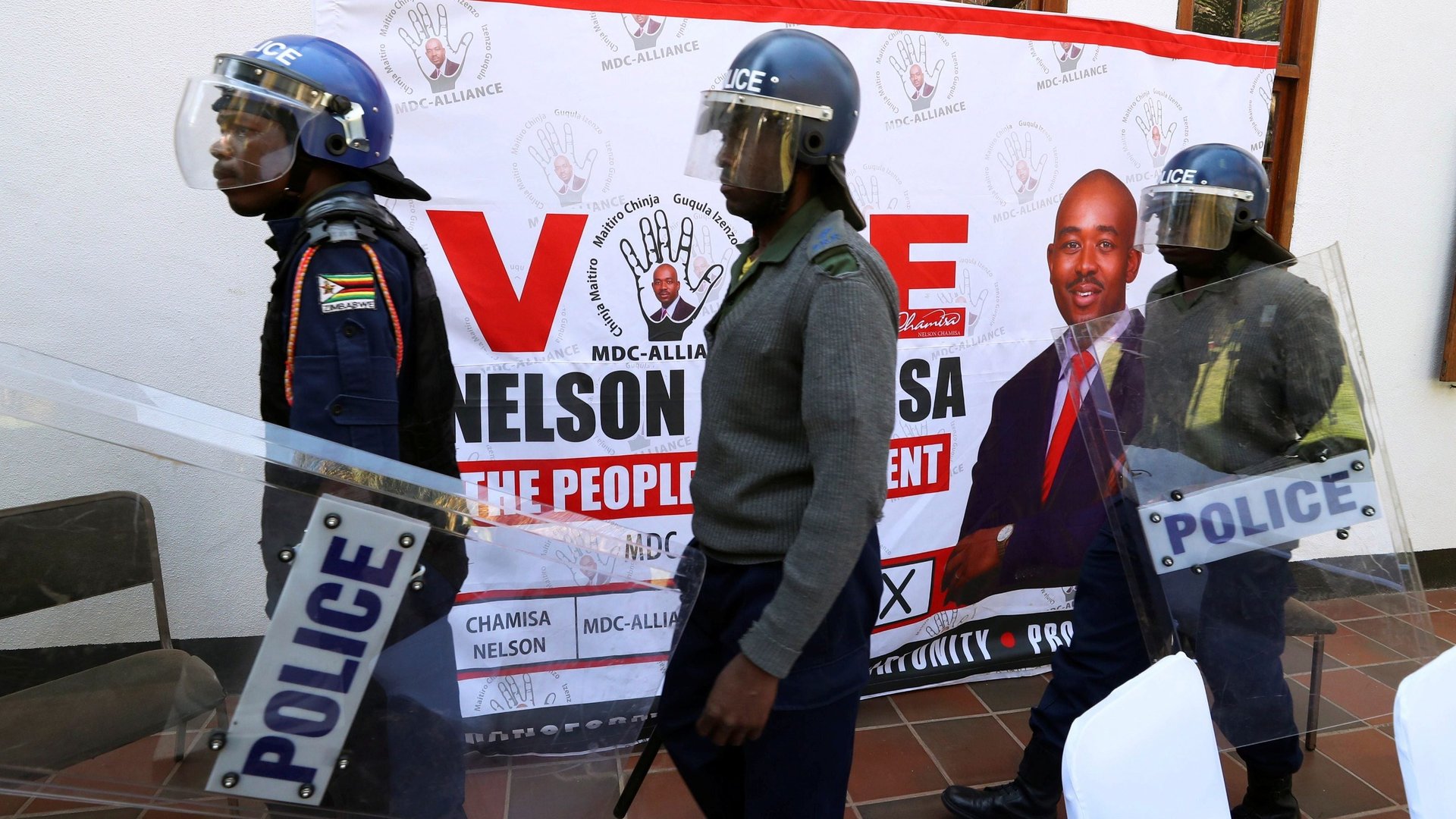Getting rid of Robert Mugabe wasn’t enough to change Zimbabwe’s election habits
This week, Zimbabweans voted in an election deemed historic because for the first time since independence in 1980, Robert Mugabe would not be on the ballot. It was meant to be a watershed moment for the country, and yet this election showed in so many ways how little has changed in Zimbabwe.


This week, Zimbabweans voted in an election deemed historic because for the first time since independence in 1980, Robert Mugabe would not be on the ballot. It was meant to be a watershed moment for the country, and yet this election showed in so many ways how little has changed in Zimbabwe.
Elections have almost always been tense in Zimbabwe. In 2000, they were marred by sporadic violence and allegations of irregularities. The 2005 election was much the same. The 2008 presidential run-off between Mugabe and long-time political adversary Morgan Tsvangirai left more than 100 people dead. 2013 was tense, and the opposition’s accusations of rigging made little difference as Zanu-PF maintained power.
So it was with a great sense of dismay that Zimbabweans and the world watched the 2018 election follow this pattern, yet again. After the military removed Mugabe last November, this vote was formally dubbed the “harmonized election” that was meant to unite the country. After all, no one but Mugabe would call his removal a coup, and his departure by any means was celebrated as a new dawn.
Instead, six people were killed this week when protests against the parliamentary results turned into violent riots. The situation became deadly when the army opened fire on civilians. Opposition leader Nelson Chamisa said the Movement for Democratic Change would challenge the result, while the winner, Zanu-PF’s Emmerson Mnangagwa called for unity as his aides plan an inauguration.
It’s all depressingly familiar, even with the change in the cast of characters. A usual cast member of Zimbabwe’s political theatre, the military, maintained its ominous presence. Finally free from Mugabe’s grip, this was meant to be an opportunity for Zimbabweans to take back their country. Citizens did their part, with voter turnout over 75%, according to the Zimbabwe Electoral Commission. Instead, it’s a familiar script of powerlessness for the people.
The election had all the props of democracy: a long list of hopeful candidates, clearly demarcated constituencies, campaign rallies and rolling results announcements. This, however, isn’t real democracy. Real democracy leaves its citizens feeling empowered, and even in loss, they should feel safe and hopeful for the future. Even if the opposition’s bid to overturn the results proves without merit, the violence in the streets, the army opening fire at will, and the intimidation of journalists is a worrying sign of what could be on the horizon. Zimbabweans held muted celebrations and some protested, but for the most part, they did as they have for years—they carried on.
Zimbabwe staged the kind of election that makes voters lose faith in democracy and popular participation. It’s an increasingly familiar pattern across the continent, in which ruling elites use elections only to rubberstamp their power. The new president has worked hard to separate his image from his role in Zimbabwe’s past, but Zimbabwe’s powerful generals seem unwilling to exit the stage. Mnangagwa has promised his people and the international community that this is a new Zimbabwe, yet the old Zimbabwe seems ever present.